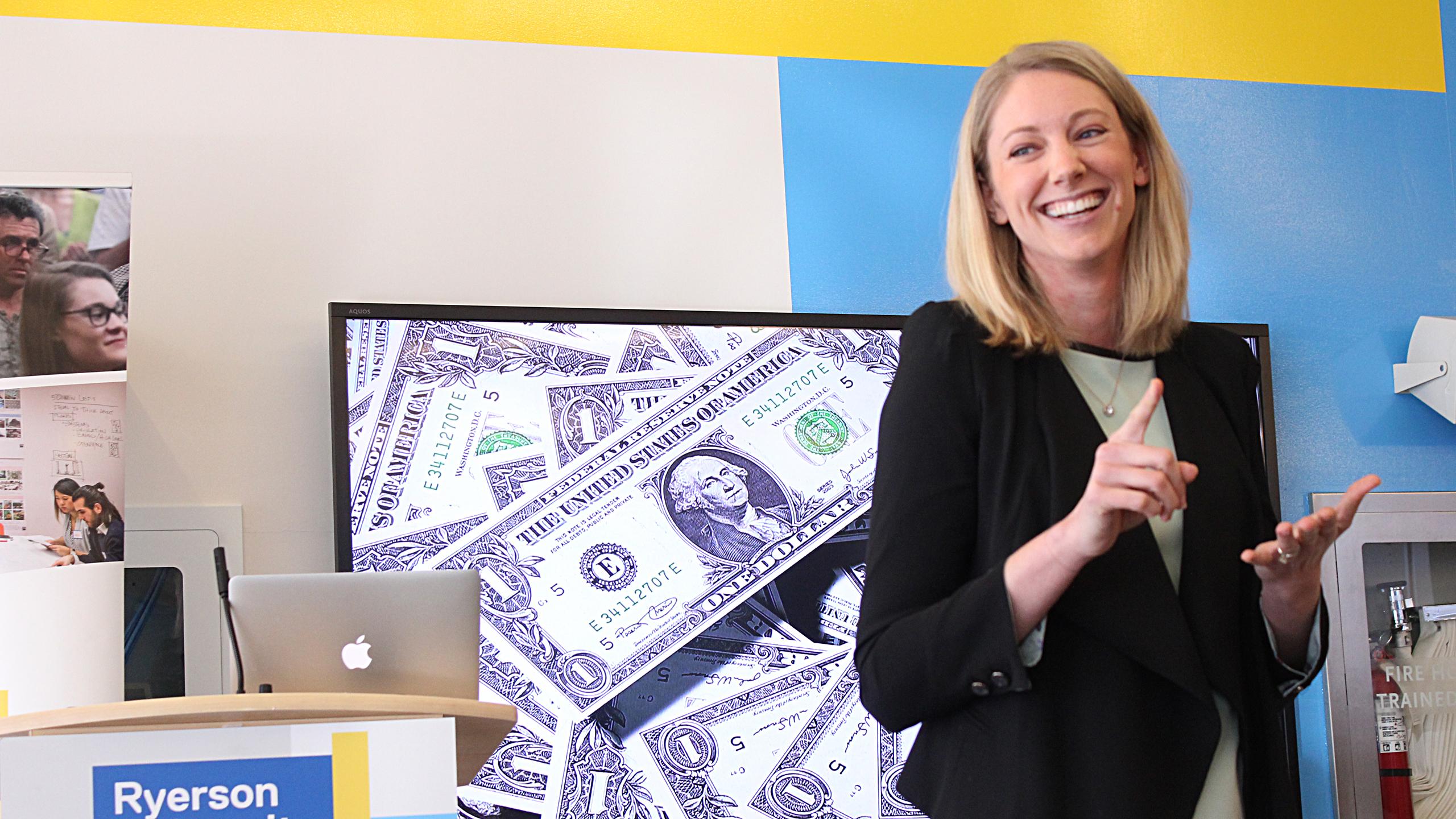By Adrian Vallada
Attendees braving through Toronto’s horrid cold weather were met with an interesting discussion about “The Myth of Capitalism: Monopolies and the Death of Competition” by Denise Hearn and Jonathan Tepper, hosted by the Brookfield Institute for Innovation on Jan. 21 at the Student Learning Centre.
The event began with a brief coffee and networking session to help clear the air (and the cold) from those who were able to make it. It was followed by a presentation by Hearn to introduce the idea of declining competition, which explores how businesses within capitalist economies are becoming much less competitive. An interview was hosted to finish off the morning, along with a brief Q&A session about the book itself.
[Small and medium businesses] have an incredibly important role to play
The idea that competition is dying may worry many people, especially those who want to go into business or start their own.
Professor Bryan Evans of the Department of Politics and Public Administration says, “the internal dynamic of capitalism…has been one that [is] leading towards monopolies/oligopolies, where one corporation or a handful of corporations begin to dominate different parts of the economy. Part of their objectives [big stores] is to drive out the independent operators they compete with.”
The end goal of any business is to make money, and as Evans suggests, a big strategy of companies is to remove the competition to make more money. Denise used the example of American airlines who slowly combined into several big companies with their competition over the years.
But there could be other reasons why competition may be dying in capitalist economies. Dr. Tuna Baskoy, associate professor in politics and public administration at Ryerson University says, “many players in the market [are] not compatible with modern technology…if there are [too] many players, there may be instability in the market.”
“[We] could get better service with less competition,” he adds. Less competition, however, does not stop the “increasing threats from international firms like Alibaba in China…that [can] disrupt what Amazon is doing,” says Hearn.
So is there anyone controlling this decline of competition? Hearn addresses this point about controlling monopolies, like the telecommunications companies in Canada which are largely dominated by Bell, Rogers and Telus.
In America, laws known as antitrust laws are in place to help prevent companies from becoming monopolies by absorbing every competitor in sight, while also giving new startups opportunities to enter the market.
As Ryerson encourages students to move forward with our ambitions by often holding events like this, Hearn also gives encouragement to move forward with their ideas since “[small and medium businesses] have an incredibly important role to play. They are able to be more innovative…to invest more in R&D, and probably don’t have the political pressures…[or] quarterly earnings targets to meet.”
Though she may be right in saying “ [small businesses] are unfortunately no longer the backbone of our economy” because of how larger companies have worked the market, the future is still open for that one person to change everything.
For more information on Hearn’s book, visit: https://www.mythofcapitalism.com










Leave a Reply